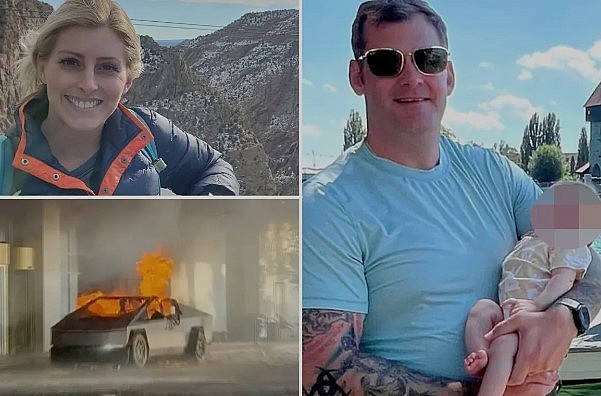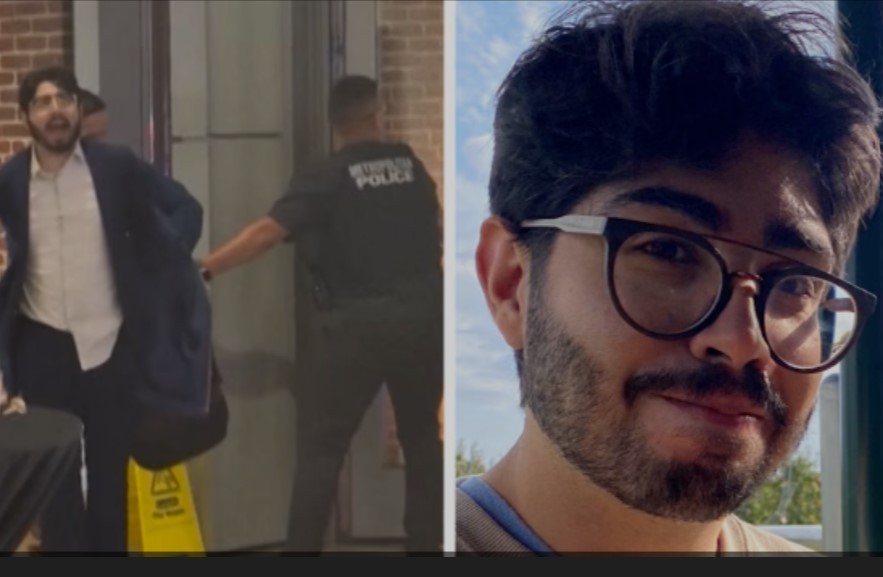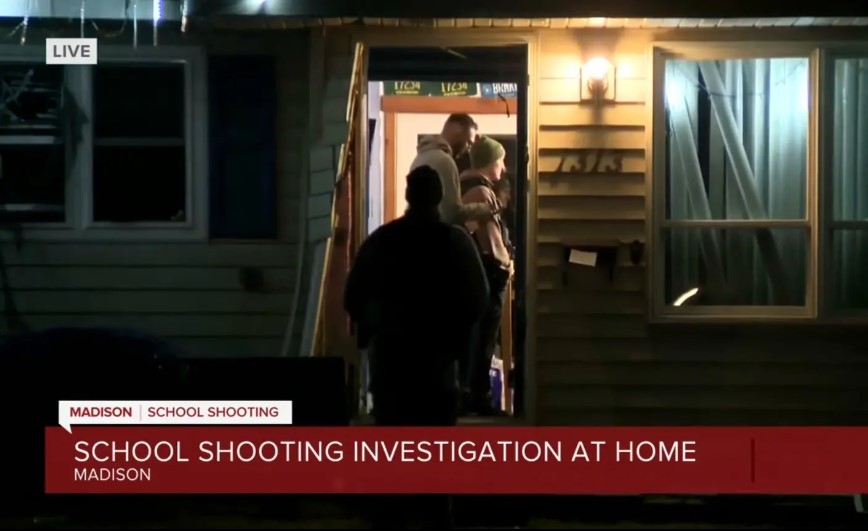What's Inside Matthew Livelsberger's Suicide Manifesto and the Motivation?
 |
| Matthew Livelsberger's Suicide Note |
The death of 37-year-old Matthew Livelsberger, a highly decorated Green Beret, has shocked the nation, highlighting the profound struggles many veterans encounter after returning from war. Authorities report that Livelsberger died in a dramatic explosion outside the Trump International Hotel in Las Vegas, an act he orchestrated after firing a gun into his head inside a rented Tesla Cybertruck. The vehicle was rigged with explosives, creating a fiery scene that left investigators piecing together the motivations behind his actions.
This tragedy unfolded just hours after a separate, horrifying attack in New Orleans, where a Texas Army veteran drove a truck flying an Islamic State flag into a crowd of New Year’s Eve revelers, killing 14. Initial fears of a coordinated assault were quickly dispelled, as investigators found no link between the two incidents. Yet, Livelsberger’s death and its disturbing details have brought attention to the invisible scars borne by many combat veterans.
Clues from the Ashes: Manifesto or Suicide Note
Police uncovered two notes on Livelsberger’s charred cellphone recovered from the Tesla. These notes, written in a digital app, provide insight into the torment he faced and the rationale behind his actions.
“This wasn’t a terrorist attack. It was a wake-up call,” Livelsberger wrote. “Americans only pay attention to violence and spectacle. What better way to get my point across than fireworks and explosives?”
A second note revealed a deeply personal struggle:
“Why now? I needed to cleanse my mind of the brothers I’ve lost and relieve myself of the burden of the lives I’ve taken.”
Livelsberger also issued a stark warning to his fellow servicemembers and the nation at large: “WAKE UP. We are being led by weak and self-serving leadership. We’re the United States of America—the greatest country to ever exist—but right now, we’re terminally ill and heading toward collapse.”
A Life of Service and Sacrifice
Livelsberger’s military career spanned 18 years, during which he served in multiple combat deployments, including Afghanistan in 2017 and 2018. Known as a dedicated soldier and a staunch supporter of President-elect Donald Trump, Livelsberger embodied the image of a patriot. He was awarded the Bronze Star for valor and other honors for his courageous actions in combat. Yet, behind his outward accomplishments lay a man grappling with profound inner demons.
 |
| Cybertruck bomber Matthew Livelsberger’s wife broke up with him days before explosion outside Trump hotel |
Friends, family, and experts believe that Livelsberger may have been suffering from PTSD and traumatic brain injuries (TBI), conditions that often go unnoticed until they lead to irreversible consequences. The Department of Defense has provided his medical records to law enforcement, but officials have not confirmed whether he sought treatment for these issues.
Signs of a Troubled Mind
In the days leading up to the incident, Livelsberger documented his journey from Colorado to Las Vegas in his phone, leaving a trail of emotional grievances and reflections. According to sources familiar with the investigation, he left his home in Colorado Springs after a heated argument with his wife over suspected infidelity. Renting a Tesla Cybertruck through Turo, he embarked on a journey that ended in a fiery act of despair.
The explosion, which shook the area surrounding the Trump International Hotel, left seven people with minor injuries. Livelsberger’s body was burned beyond recognition and was identified only through his passport, military ID, and matching tattoos. Authorities have since uncovered surveillance footage from charging stations along his route and continue to analyze the immense amount of data found on his cellphone and laptop.
 Who is Sara Livelsberger, Wife of Matthew Livelsberger - Cybertruck Attack Suspect Who is Sara Livelsberger, Wife of Matthew Livelsberger - Cybertruck Attack Suspect |
A Legacy of Pain and Resilience
Those who knew Livelsberger describe a man deeply affected by his military experiences. Alicia Arritt, a nurse who dated him from 2018 to 2021, recalled his struggles with memory loss, poor concentration, and overwhelming guilt. These symptoms, she said, aligned with those experienced by veterans suffering from TBIs. “He wanted to get more help,” Arritt said. “But being on active duty, the shame and stigma made it harder for him.”
 |
| Alicia Arritt and Matthew Livelsberger dated on and off from 2018 to 2021 |
Arritt, who specializes in treating veterans with brain injuries, recalled Livelsberger describing his condition as “just some concussions.” But the long-term effects became clear: restless nights, difficulty focusing, and growing frustration. Livelsberger also endured physical pain, undergoing back surgery to address injuries from parachuting—an advanced skill common among Special Forces operatives.
Experts like Dr. James Stone of the University of Virginia explain that repeated blast exposures and concussions can cause lasting damage to neural pathways, leading to difficulties with emotional regulation and cognitive function. These injuries, coupled with the psychological weight of combat, can leave veterans like Livelsberger in a fragile state.
 Who is Livelsberger's Ex-Girlfriend, Alicia Arritt: Army Nurse and Single Mother Who is Livelsberger's Ex-Girlfriend, Alicia Arritt: Army Nurse and Single Mother |
A Complex Man
Despite his struggles, Livelsberger was known for his compassion. During a 2009 deployment in Afghanistan, he rescued a stray dog and brought it to his team compound, showcasing his care for even the smallest lives. He later helped an Afghan interpreter, Fardin Fetwat, resettle in the U.S., picking him up from the airport and organizing a fundraiser to support his family’s new life in Denver.
“He was always someone who wanted to help others,” said Fetwat, who never suspected the darkness Livelsberger was facing.
Arritt echoed this sentiment. Despite their breakup—driven by their differing life goals—she continued to care for him from afar, describing him as the “one who got away.” Livelsberger had expressed pride in his service, often sending her photos of himself in camouflage and military vehicles. Yet, his jovial exterior masked the toll of years in combat.
A Tragic Wake-Up Call
The investigation into Livelsberger’s death remains ongoing, with officials working tirelessly to piece together his final days. FBI Special Agent Spencer Evans described the case as “a highly publicized tragedy rooted in the personal struggles of a decorated veteran.”
For those who knew Livelsberger, his actions remain both shocking and heartbreaking. His story serves as a grim reminder of the invisible wounds of war and the need for greater support for those who have borne the weight of combat.


























